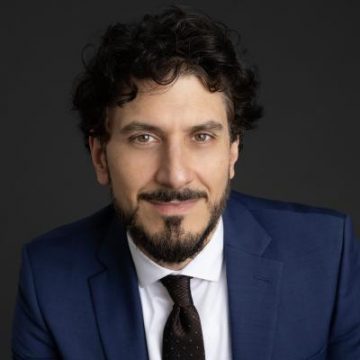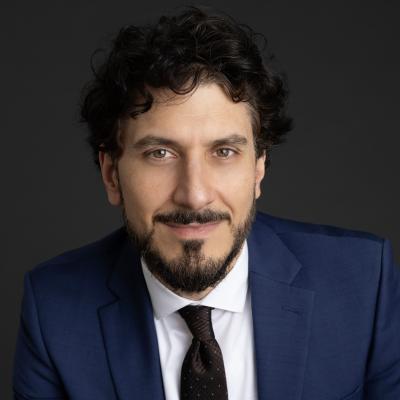Imagine a world where you could pursue your interest in teaching without being a teacher, where you could explore hunting without being a hunter — to put it more generally, where you could experience an occupation without shouldering an occupational label. What avenues would you pursue? This is the question that Assistant Professor of History Gregory Milano asked at the end of his “What is Capitalism?” lecture that took place on Monday, Feb. 10 in the Warch Campus Center (WCC) Cinema. The lecture was sponsored by the Lawrence University chapter of the Young Democratic Socialists of America (YDSA) and was as straightforward as its title; Milano introduced a basic understanding of what capitalism is in both concept and practice, drawing ideas from economic and social thinkers such as Karl Marx, Max Weber and Adam Smith.
In the first few minutes of the lecture, Milano defined capitalism in a way that will sound very familiar to many of us; it is a system promoting commodification of human labor and accumulation for its own sake without regard for its consequences. However, he also redefined the term as we know it, or, rather, as we thought we knew it. He called capitalism, first and foremost, a moment in history rather than an inborn part of our world or our humanity — something came before it, and something will come after. It is a system that has upended and, ironically, revolutionized the human experience in fostering advances in technology, education, medicine and much more, as well as defied the limits of our world’s inherent scarcity. Milano reapproached the concept as being inlaid with paradox, considered by Marx to simultaneously be the best and worst thing to happen to the human species. To conclude his overview, Milano emphasized that it is also the distance of what is and what could be, for better or worse. It even creates ways within itself to overcome it, like technology for menial tasks, and reappropriate it for human betterment.

Milano traced capitalism to its embryonic stages in the centuries leading up to Europe’s Industrial Revolution. The 19th century technological boom would mark the spillover of the system to other parts of Europe and beyond. Ironically, though human agency put the system into place, Milano said that capitalism now follows a logic of its own, beyond our control.
As both an economic and social system, Milano explained that the phenomenon is unlike any other humankind has experienced before; unlike many systems, we cannot exist outside of it — it is a context that ironically even communist states, as accumulators of wealth, are part of. Even the capitalist class, dubbed the “fat cats” by the lecturer, is not immune to the cycle of accumulation imperative to keeping their upper-class status. Unlike feudalism, where there was a personal connection to one’s direct overseer, Milano explained that capitalism is a system of compulsions within us, e.g. getting up and going to work every day lest we be left without the means of survival, that inadvertently reinforce the system. No longer is capitalism about the market/private relationship; to understand it better, Milano charged his audience to think about it in terms of a force dominating numerous facets of life.
While Milano acknowledged that capitalism is to thank for the creation of beneficial surpluses, he also emphasized that constant accumulation in a world with finite resources is not possible and poses a threat to our species. From Marx’s lamentation of soil nutrients stolen from the people to the current problem of fossil fuel pollution, Milano condemned the reckless abandon with which the capitalist class has had negative effects on the environment, going as far as to consider the system a threat to the human species.
Milano took a stab at a difficult question at the end of the lecture: what would a post-capitalist world look like? He, like Marx, rejected a reactionary return to an earlier stage of socioeconomic development or for everyone to share the proletariat burdens of harsh working conditions. Instead, Milano imagined a world closer to the one found in Marx’s unpublished works in which the proletariat is abolished and nobody is committed to one task, instead working alongside automation to create more time for enriched and more fulfilled lives. The final question Milano posed to his audience was: in a post-capitalist world, how would you spend your time? Where would you direct your newly reclaimed energy?
The lecture was well-received by the attendees and was followed by a Q&A session, where students asked about everything from police power under capitalism to ways to overcome the system.

